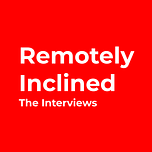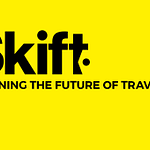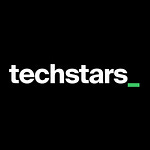Hi,
Welcome to Remotely Inclined, a newsletter about remote work and remote entrepreneurship. If you’d like to sign up, you can do so here. Or just read on…
Joshua Tiernan - he goes by JT - has been working remotely for over a decade. He’s also got a few other monikers to go by:
No-code founder
Remote entrepreneur
Solopreneur
Twice-acquired entrepreneur
Family man
Living outside of Edinburgh, Scotland, JT initially got into remote work to get away from the 1.5 hour each way commute he had to his office job downtown. From there, he got into the no-code world, a burgeoning movement of non-technical people building technical businesses without writing code.
As far as entrepreneurship goes, JT has always worked full-time and focused on side-hustles, eventually selling two of them.
Now, off the back of selling his remote job board Remote Circle to WeWorkRemotely (part of the Tiny Capital family), JT is focused 100% on his job and building No Code Founders, a community of non-technical entrepreneurs.
Scratch your own itch
JT has built over 10 no-code projects, but not all of them were successful. Each time though, whether it was successful or not, he started the projects to solve a problem for himself.
As it turns out, that’s also the best way to get success in this game.
→ Remote Circle was founded because JT wanted to filter remote job opportunities by time zone. That unique feature helped the company stand out in the crowded job board website field — and ultimately helped lead the company to acquisition.
→ No Code Founders was started so JT could connect with other non-technical entrepreneurs like himself. The community is now over 2,000 people and growing.
Remote work and family life
With a young family, stay-at-home spouse, and working remotely, JT’s entire family is at home all day. Here’s how he avoids the stress and tension that can arise working with your family in tight quarters.
→ He treats his at-home job like an office job. He gets up, showered, dressed, etc. - and he takes regular work breaks as if he was in the office.
→ The whole family takes a no-screen lunch break to reset and connect.
→ The family gets out of the house at least once a day, usually at lunch. On a nice day they go for a walk. On a nasty weather day they go for an aimless drive to get a change of scenery.
Building, monetizing, and selling Remote Circle
Built in no-code app platform Bubble, JT started rudimentary and built from there.
→ The initial unique value proposition was filtering by timezone, making the job board very popular in Europe (as most remote job boards at the time were very US-centric).
→ By collecting feedback using Superhuman’s Product Market Fit Engine, JT discovered other features his core user base really wanted, which added value.
→ Instead of charging for job postings, JT opted for a sponsorship model. This allowed him to add more companies and jobs faster than competitors.
The final word
“Start with whatever’s in your hand at the moment… not everything works, but the important thing is that you learn from your mistakes.”
Remotely Inclined Chats with JT
Transcript edited for brevity and clarity.
Stefan: Welcome, JT! Can you share what you’re working on and what No Code Founders is all about?
JT: Yeah! No Code Founders is primarily a slack community which consists of 2,000 founders and entrepreneurs who are developing businesses without using code.
Most of the activity happens in Slack, but we also have a newsletter and website where we share resources and interviews from founders who are building businesses without code, which gives us some insight into how they’re doing that.
How did you get started in the no code world?
I’m an entrepreneur, and thought the online space was the most interesting. But I didn’t have a massive interest in learning to code. I was more interested in the business side. So no code was a natural progression for me finding a way to build things myself without having to find developers.
When I started my first online projects, there wasn’t the term ‘no code.’ But now there are applications which are way more powerful that allow you to basically build software without code. I’ve just progressively got more powerful tools along the way.
What were your favorite 3 no-code projects?
No Code Founders itself. That’s my favorite because it’s so simple.
I also built a project called Earnestly, which was basically a short-form blogging platform. I quite liked that challenge.
Then I built a site called Remote Circle, a remote jobs board which was just acquired.
Congratulations! You’ve been working remotely from your home in Scotland - but why didn’t you just get an office job?
I actually used to work in the city centre of Edinburgh for about 10 years. But I wanted to work in the tech space. While it’s a good city for tech, you’re still limited in the companies that you can work for. And as an entrepreneur, my skillset wasn’t focused so it was difficult to get a role in that space.
Working remotely was also appealing for me because I lived quite far outside the city centre. The commute was an hour and a half each way. And I’ve got a young family so it was appealing to me to be able to work from home and have lunch with them.
And you’ve now sold two no-code projects?
Yup. The first was called WeddingHacks, which was a wedding blog (just a wordpress site). I wrote all the content myself then sold it to one of the big wedding directories in the UK. And then Remote Circle.
Focusing on Remote Circle - how did you differentiate the business in the saturated world of online job boards?
I had been trying to get a remote job for a couple of years and found it very difficult. When I was using remote job boards, I was finding that 80% of the jobs were with US companies wanting US staff. But that wasn’t explicitly in the job title. So I’d find myself scrolling through job descriptions. As an example, I went through one site that had 200 jobs, but I was only eligible for two of them.
So the purpose of Remote Circle was to be able to filter by timezone. So you could see companies that were recruiting for your timezone. For that reason, it was popular in Europe.
Did you iterate on the project much before it was acquired?
Yeah - the first version was fairly simplistic. It was built really quickly in the first month. Then we used the Superhuman Product Market Fit Framework, which was basically asking people how disappointed they would be if your product didn’t exist anymore. The Superhuman team then iterated based on the people who would be most disappointed.
Using that framework, we found features people were wanting. One feature was advanced job alerts that people could get via email. Rather than sending a newsletter with all the jobs, they could save their search on the site and get jobs that matched those conditions. There were a few iterations like that. That took probably one year from when we released the product to when we were purchased.
Did you monetize from day one?
It wasn’t revenue generating right away. It took a while to get to that stage. It was definitely a side project and I was working full-time in tech during that time.
How do you manage working from home with a family?
We have a fairly small place, so I’ve carved out a small corner for my office. And I’ve recently invested in noise cancelling headphones, and I highly recommend them.
Other than that, I just try to stick to a schedule as if I had an office job. I keep my lunch the same timing. I take regular breaks, coffee breaks, and whatnot. I try to be quite strict on those things. I don’t work in bed or work in pajamas. I always just get up as if I had an office job.
What about potential frustrations from everyone being home all day?
We try to take a lunch break. If the weather’s good we’ll go for a walk. If it’s not good, we’ll just go for a drive with no destination in mind, just to change the scene for all of us. We switch off completely from our screens at lunchtime.
Jumping back to Remote Circle - you said Tiny Capital tried to buy you but you weren’t ready at first?
Yeah, they reached out looking for potential acquisitions. And we were pre-revenue, so it wouldn’t have been a particularly good deal for either of us. A couple years later, when No Code Founders started and was getting a bit of traction, I started putting more focus into that and it was quite difficult balancing growing the two at the same time. So I reached back out and it went from there.
How did you build your monetization strategy?
We had a niche, but because we’re effectively still a global remote job board, monetizing job postings proves quite difficult. So the approach we took was to do site sponsorship. We had SaaS tools that would pay us a quarterly rate to advertise their product directly on the site, effectively as an ad.
We created the ads ourselves and it was included in our newsletter. It was a nice little model that didn’t require a constant sales process and made it a bit more manageable for me to run those on the site.
Getting people to pay to post jobs on the site just wasn’t working. We could have niched down to something very specific, but our unique selling proposition was the timezone filter, so we needed to stay global. And we already had an existing audience that was global across all sectors and fields.
So that forced us to look at alternative revenue models, then we landed on site sponsorship. The big advantage as well of not charging is that you can get more jobs and more companies - we ended up with 500 companies, which we probably would never have gotten if we charged.
Now that you’ve sold Remote Circle, what do you want to accomplish with No Code Founders?
I think at the moment, no code is still quite small and there’s a specific audience for it. But I know that there’s millions of other nontechnical founders who are running Shopify stores that would never have heard the term no code. So I’d love to reach those people.
I started it to scratch my own itch of meeting people who were like me. I always felt that imposter syndrome of being in the tech scene and not being a developer. For me, it was a way to meet people who were in that same position.
Wrapping up, what’s your advice for aspiring solopreneurs and entrepreneurs?
It’s dependent on each person’s personality, but I would say start with whatever’s in your hand at the moment. I just start something - and not everything works, but the important thing is that you learn from your mistakes.
Amazing, thank you for your insights!
You can get in touch with JT by following him on Twitter or signing up for No Code Founders, where he messages every new member to say hi.
Image courtesy Joshua Tiernan and Bubble.















Share this post